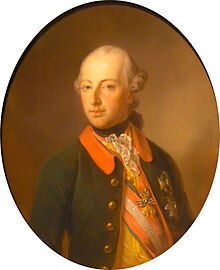Landesvater

The ceremonial Landesvater is a German college custom developed in the 18th century, where student caps are pierced with the blade of a sword, during the recital of a particular song. The song that accompanies this event is also called 'Landesvater'. The word Landesvater is also used as a name for the prime ministers of the individual German states, or Länder.
History

In the 17th and 18th centuries, it was common among students to pierce their hats in order to show their love for a girl. Later, the custom changed insomuch as it symbolised friendship between two students who henceforth said Du (brother) to each other. A further step in the development of this custom transferred the symbolic expression of friendship to their larger community. After 1770, academic orders were founded, following the example of the Freemasons. They used the rite in order to express their loyalty to their respective prince or the emperor. The original version of the 'Landesvater' that is still used today, with modified lyrics, hence praises Emperor Joseph II. The pierced parts of the caps are often embroidered with cloth in the form of an oak leaf.[1]
Lyrics
The ceremony is accompanied by the song Alles schweige, jeder neige / Ernsten Tönen nun sein Ohr, which was written by August Niemann in 1782. Whereas Niemann's version praises Emperor Joseph II, the lyrics of the 'Landesvater' were changed in the 19th century, and have since then praised Germany, instead of a single monarch.[2] The modern version emanates from Friedrich Silcher (1823).

Niemann's original 18th century lyrics (excerpts) were as follows:[3]
| original German | translated English |
|---|---|
Vorsänger |
Precentor |
Chor |
Chorus |
| (...) | (...) |
Der Vorsänger, der nächste Sänger |
The precentor, the one sitting next |
Heil dem Bande, |
Hail to the ribbon, |
| (...) | (...) |
Joseph lebe! |
Joseph may live! |
Nun eine Pause von einigen Minuten, |
A pause of several minutes. Then |
Heil, Kaiser Joseph, Heil! |
Hail to thee, Emperor Joseph, hail! |
| (...) | (...) |
Wir fühlen hohen MutH |
We feel proud courage |
Bleibt, Deutsche, brav und gut! |
Germans, remain brave and good! |
Er fühlt nicht deutschen MutH, |
He does not feel German courage |
| (...) | (...) |

References
- ^ Dieter Langewiesche, ed. (2000). Föderative Nation. Deutschlandkonzepte von der Reformation bis zum Ersten Weltkrieg. Munich: Oldenbourg Wissenschaftsverlag GmbH. p. 136.
- ^ Joachim Bauer: "Student und Nation im Spiegel des »Landesvater«-Liedes", in: Dieter Langewiesche, Georg Schmidt (ed.): Föderative Nation. Deutschlandkonzepte von der Reformation bis zum Ersten Weltkrieg, Munich, 2000, P. 136–155, P. 146.
- ^ Die Grenzboten. Zeitschrift für Politik und Literatur. 25th year, No. 1. Friedrich Ludwig Herbi: Leipzig, 1866. P. 300. Online version.
Literature
- Adam Joseph Uhrig: Der akademische Landesvater, ein Denkmal aus alter Ritterzeit. Würzburg 1888.
- Erich Bauer: Der ursprüngliche Text des Landesvaters von stud. August Niemann 1782. Einst und Jetzt, Bd. 22 (1977), P. 235–238.
- Joachim Bauer: "Student und Nation im Spiegel des »Landesvater«-Liedes". In: Dieter Langewiesche, Georg Schmidt (Hg.): Föderative Nation. Deutschlandkonzepte von der Reformation bis zum Ersten Weltkrieg. Munich 2000, P. 136–155.
- Georg Conrad: Der Landesvater. In: Studentenhistorische Beiträge (1993), P. 37–39.
- Wilhelm Fabricius: Die Deutschen Corps. Eine historische Darstellung mit besonderer Berücksichtigung des Mensurwesens. Berlin 1898, 2nd edition. 1926. P. 122ff.
- Wilhelm Rehmann: "Der feierliche Landesvater als Höhepunkt des Kommerses". In: Der Convent 6 (1955), P. 222–227.
- Aribert Schwenke: Zur Geschichte des Landesvaters. Einst und Jetzt, Bd. 35 (1990), P. 67–88.
External links
- Landesvater — modern German text at ingeb.org, 20,000 German folk songs
- Excerpts of the modern version of the Landesvater (1st, 3rd, 8th and 10th stanza)
